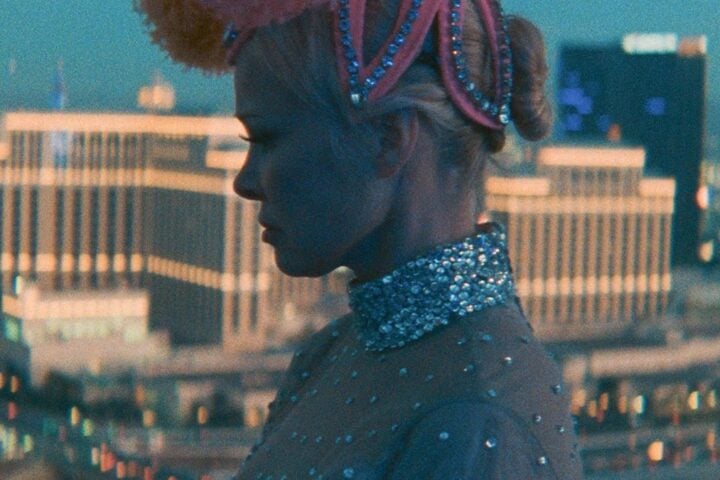Over the years, Werner Herzog has walked from Munich to Paris, pulled a giant boat over a Peruvian mountain, and run toward a volcano as all but one of a surrounding town’s inhabitants fled a pending eruption. Which is to say, the iconoclastic filmmaker has always pushed the boundaries of what he’s wanted to explore. So it’s fitting that with Theater of Thought, he’s finally set his focus on one of the most enigmatic sites of all: the human brain.
If Theater of Thought is somewhat hampered by its frequent use of talking-head interviews, its perspective on the current (and future) state of neural technology, and the blessings and curses that do, or may, come with it, is invigorated by Herzog’s persistently quixotic line of questioning. What could have been a dry run-through of an array of otherwise fascinating technological breakthroughs is instead rendered as an often strange and funny meditation on the boundless potentials of human thought, expression, and understanding.
The innovations, including devices that can do everything from assist paraplegics in operating a robot arm with their brains to predict human responses to narrative developments in films, are compelling enough on their own. But Herzog isn’t content to merely celebrate these inventions, as he’s steadfast in prodding his subjects over the implications these scientific achievements may have in the future—often ones that the scientists themselves hadn’t even considered.
Some of Herzog’s queries are pitched as humor, such as “Do fish have souls?” and “Would you like to communicate with a hummingbird?” Yet even these questions push the scientists, and by extension the viewer, to consider neural tech’s potential for interspecies communication, as well as the existential consequences that may come along with it. Meanwhile, other queries about the ability to read the minds of people who can’t speak anymore or the more nefarious capability to encrypt someone’s thoughts speak directly to both the extremely hopeful and disastrous powers that are far closer to becoming a reality than many people might think.
Whether or not the scientists have credible or compelling answers to these questions is decidedly beside the point. And, spoiler, they often don’t. Herzog is unsurprisingly more interested in probing the technological advancements on display for their underlying poetic beauty and philosophical ramifications. After learning that one scientist used a device connected remotely to another scientist’s brain to involuntarily move his hand, Herzog glances over the actual science of the feat to instead wonder if a similar contraption could allow the recently deceased to send a message confirming heaven’s existence. It’s as if by being confronted by new innovations that appear to have come straight out of a sci-fi film, Herzog exercises his galaxy brain to see what we could be capable of a decade, even a century, from now.
As Theater of Thought is privy to the whims of its maker, it’s occasionally meandering, moving through its array of subjects with little rhyme or reason. Yet, aside from a completely extraneous aside with famed high-wire artist Philippe Petit, Herzog manages to tie all of his disparate musings back to the unimaginable malleability and adroitness of the human brain. And if the film has more to say about Herzog’s own speculations and fantasies about the future of neural tech than anyone else’s, Theater of Thought is at least all the more singular because of it.
Since 2001, we've brought you uncompromising, candid takes on the world of film, music, television, video games, theater, and more. Independently owned and operated publications like Slant have been hit hard in recent years, but we’re committed to keeping our content free and accessible—meaning no paywalls or fees.
If you like what we do, please consider subscribing to our Patreon or making a donation.




